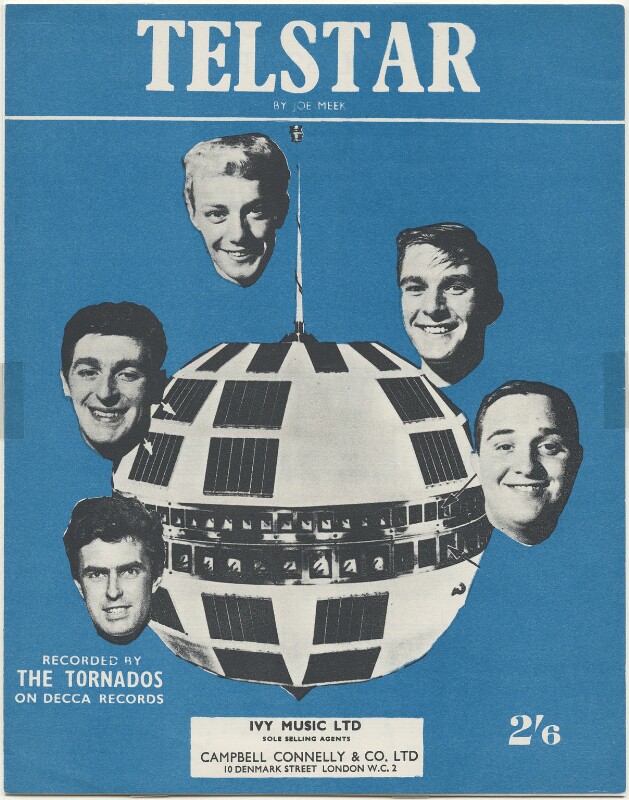
Heinz obituary in “The Guardian” in 2010.
The career of the singer and bass player Heinz Burt, who has died aged 57 after a courageous battle against motor-neurone disease, is a cautionary tale rooted in the pre-Beatles 1960s. Heinz, as he was billed, was a protégé of the paranoid, and finally homicidal, record producer Joe Meek.
In 1962, the German-born 19-year-old, plucked from bacon slicing in a Southampton grocery, was credited as one of Meek’s studio band, the Tornados, on Meek’s five million-selling single, Telstar. A year later, Heinz entered the top 20 as a Meek-created solo artist with Just Like Eddie, a tribute disc to the dead American rock ‘n’ roller Eddie Cochran.
Meek was Britain’s first independent pop producer. He recorded in a tiny flat in the Holloway Road, north London, and – in between obsessions with the dead Buddy Holly, death in general, seances and graveyards – had made a clutch of British hits, which displayed an occasionally spectacular talent for electronic sound.
But it was a time when the salesmen of British pop culture, of which Meek was one of the most driven, were almost entirely parasitic on the United States. Thus did they attempt to clone American-style teenage stars from wildly unsuitable domestic material. Meek dispatched a series of Elvises, Buddy Hollys and their ilk into the world, and the world remained largely indifferent.
Meek fell in love with Heinz, and dismissed suggestions that the teenager, who moved into the Holloway Road flat, might be an indifferent singer or, indeed, bassist. Inspired by the movie Village Of The Damned, in which the world is threatened by a brood of blond, staring-eyed children, the producer prevailed upon the youth to peroxide his hair. The theory may have been an image of the cold teuton, the reality was rather bemused Hampshire.
Soon Heinz was separated from the Tornados to pursue his Meek-directed solo career. Since his voice had displayed some inadequacies, the producer doctored the tape on his debut single by adding that of another singer. The record flopped.
Then Heinz was unwisely sent on tour with the American rock singers Gene Vincent and Jerry Lee Lewis. Meek envisaged Heinz’s audience as teenage girls, but he was confronted with sceptical male youth and booed on and off stage. In Birmingham, Heinz told Meek’s biographer John Repseh, the audience tried to attack him. The band and singer were showered with beans.
The next single, Just Like Eddie, was Heinz’s only hit. He played a summer season at an end-of-the-pier show with the ancient comedian Arthur Askey. But a week after Just Like Eddie entered the top 20 came the Beatles’ She Loves You. The era in which herds of tin-pan-alley-created pop singers could roam the lower reaches of the charts was over, at least for the time being.
Meek was convicted on a homosexual soliciting charge; the records he produced flopped; Heinz fell in love with a girl. He made other records, but his brief moment was past. In 1967, Meek shot his landlady, and himself, at the Holloway Road flat. In later years, after a succession of manual jobs, Heinz reappeared on stage at 1960s pop revival shows. These included a 1992 Meek tribute concert, where he concluded with Teenager In Love. No cans were hurled. The audience sang along.
Both his marriages ended in divorce. His mother and his son survive him.
Heinz Burt, musician, born July 24 1942; died April 7 2000













